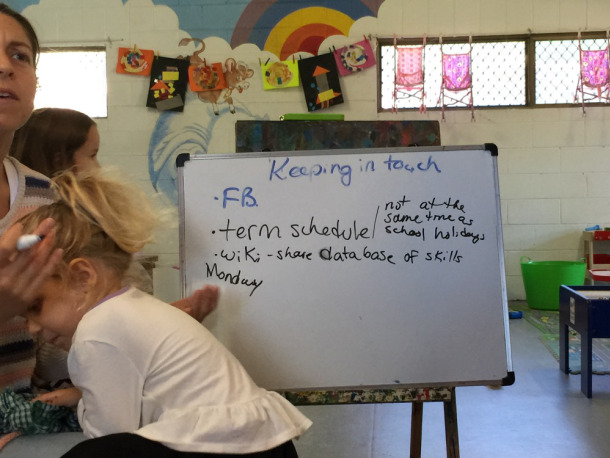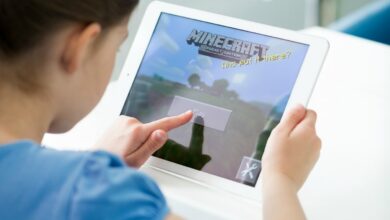Micro Schooling
Micro Schooling: Have We Found the Alternative Schooling That Many People Are Looking For?
For a couple of years now, I’ve been contemplating my children’s education. I, myself, am a school teacher, which actually complicates things, because I’ve seen both the good and bad sides of traditional schooling. I like the idea of traditional school because of the community, plus the shared responsibility of taking care of children (it’s hard work being with your kids 24/7 and never having a break), but I don’I love the idea of kids starting so young, and having to follow such a heavy content based curriculum. I love the idea of homeschooling, but don’t so much love that even in homeschooling, kids still have to follow the same sort of curriculum stuff that kids in school have to follow. For younger children, I’m not sold on the idea that they need to do anything other than play-based learning. Unschooling has really piqued my interest greatly but I also like the idea of coming together with people and building a community and having some sort of commitment. I see some of the burn out rate amongst parents choosing to home educate their children and I want to create some sort of community that prevents this sort burn out from happening.
Enter: Micro Schooling.
Micro Schooling is an idea of mine that’s been brewing for a while, but I could never quite synthesis into something beyond my thoughts. Until recently, when it all clicked. I actually googled ‘micro schooling‘ and saw that other people had the same ideas as me!
I recently organised a micro schooling interest meeting and there, parents discussed what we would wanted from our local micro school and we shared our ideas about how we would get it started. The following are our notes from the meeting.
What is Micro Schooling?
My definition of it anyway: Micro schooling is a blend of home education and ‘school’. The ‘school’ component of micro-schooling is very flexible, play and experiential based. The organization is intended to be small, grass roots, local, and led and funded by people in the community and parents. Micro schools can meet anywhere, such as community centres and other community spaces, homes, parks, and the meeting location can vary depending on the activity of the day.
Who Might Be Interested in Micro Schooling? I asked the participants ‘Why Are You Here?’
- Parents who want an alternative to full time school for their children.
- Parents who want to home educate their children, but want to keep regular contact with the community.
- Parents who want to share the load of home education with other home educators.
- Parents choosing to home educate, and who want diverse adult contact and to be in touch with other like-minded people.
- Parents who want the opportunity to have some free time (as it’s very hard to get a moment to yourself when you’re home educating your children).
- Parents who want a little bit of structure but also with flexibility.
- Parents who want to share the cost of home education.
- Parents who want their children be surrounded by a community of other children who are all experiencing a similar education style.
What Will The Kids Be ‘Learning’
The level of learning in a micro school depends on the parent’s ideal model of education. For OUR micro school, we don’t want to focus on content. ABC’s, 123’s, etc. will NOT be the focus of our micro school. Instead, we will be taking a play based approach. Lightly structured activities with lots of space for spontaneity.
How Do You Organise a Micro School? (This is the phase we’re at now… the planning!)
- We first met in person, to make a list that communicated our desires and ideas of what we wanted our micro school will look like. It was a bit chaotic with all the kids running around, so we’ll do the next phase of planning through on-line communication.
- Create an age group. Ours will be a mixed age group from about 2-7, for now.
- Create a term schedule. We’re planning on doing 7-8 week blocks at a time, our schedule will NOT coincide with school holidays.
- Choose the days and times that work for people. We’ve decided to meet 2 days per week for 3 hours in the morning.
- Choose the types of activities that you want. We’ve decided to make one day a day ‘in the classroom‘ so to speak, we’ve even contacted a Steiner teacher and are talking with her about coming for some of those days to do activities, such as craft, story telling, etc. with the kids. We will be paying her. The other day will be some sort of excursion day, not just always a play at the playground day. Maybe some plays at the playground, but not always, ’cause we’re all tired of doing that!
- Sharing of skills and expertise, bringing every parent’s skills to the table. Some parents are musicians, others are experts in health and nutrition. Every parent will, at some point, contribute their skills with the group.
- Take turns running the micro-school. Part of my biggest vision of the school is to be able to give home educators some breathing space (most of us are either SAHMs or work part time and get zero alone time). Even if it’s just a few hours a week, it would be just enough to recharge our batteries a little. Therefore, we will all take turns running the school and put into the schedule who will be responsible for the children on that day. It will be a lot like leaving your kids with good friends. Bring back the village, if you know what I mean?
For a couple of years now, I’ve been contemplating my children’s education. I, myself, am a school teacher, which actually complicates things, because I’ve seen both the good and bad sides of traditional schooling. I like the idea of traditional school because of the community, plus the shared responsibility of taking care of children (it’s hard work being with your kids 24/7 and never having a break), but I don’I love the idea of kids starting so young, and having to follow such a heavy content based curriculum. I love the idea of homeschooling, but don’t so much love that even in homeschooling, kids still have to follow the same sort of curriculum stuff that kids in school have to follow. For younger children, I’m not sold on the idea that they need to do anything other than play-based learning. Unschooling has really piqued my interest greatly but I also like the idea of coming together with people and building a community and having some sort of commitment. I see some of the burn out rate amongst parents choosing to home educate their children and I want to create some sort of community that prevents this sort burn out from happening.
Enter: Micro Schooling.
Micro Schooling is an idea of mine that’s been brewing for a while, but I could never quite synthesis into something beyond my thoughts. Until recently, when it all clicked. I actually googled ‘micro schooling‘ and saw that other people had the same ideas as me!
I recently organised a micro schooling interest meeting and there, parents discussed what we would wanted from our local micro school and we shared our ideas about how we would get it started. The following are our notes from the meeting.
What is Micro Schooling?
My definition of it anyway: Micro schooling is a blend of home education and ‘school’. The ‘school’ component of micro-schooling is very flexible, play and experiential based. The organization is intended to be small, grass roots, local, and led and funded by people in the community and parents. Micro schools can meet anywhere, such as community centres and other community spaces, homes, parks, and the meeting location can vary depending on the activity of the day.
Who Might Be Interested in Micro Schooling? I asked the participants ‘Why Are You Here?’
- Parents who want an alternative to full time school for their children.
- Parents who want to home educate their children, but want to keep regular contact with the community.
- Parents who want to share the load of home education with other home educators.
- Parents choosing to home educate, and who want diverse adult contact and to be in touch with other like-minded people.
- Parents who want the opportunity to have some free time (as it’s very hard to get a moment to yourself when you’re home educating your children).
- Parents who want a little bit of structure but also with flexibility.
- Parents who want to share the cost of home education.
- Parents who want their children be surrounded by a community of other children who are all experiencing a similar education style.
What Will The Kids Be ‘Learning’
The level of learning in a micro school depends on the parent’s ideal model of education. For OUR micro school, we don’t want to focus on content. ABC’s, 123’s, etc. will NOT be the focus of our micro school. Instead, we will be taking a play based approach. Lightly structured activities with lots of space for spontaneity.
How Do You Organise a Micro School? (This is the phase we’re at now… the planning!)
- We first met in person, to make a list that communicated our desires and ideas of what we wanted our micro school will look like. It was a bit chaotic with all the kids running around, so we’ll do the next phase of planning through on-line communication.
- Create an age group. Ours will be a mixed age group from about 2-7, for now.
- Create a term schedule. We’re planning on doing 7-8 week blocks at a time, our schedule will NOT coincide with school holidays.
- Choose the days and times that work for people. We’ve decided to meet 2 days per week for 3 hours in the morning.
- Choose the types of activities that you want. We’ve decided to make one day a day ‘in the classroom‘ so to speak, we’ve even contacted a Steiner teacher and are talking with her about coming for some of those days to do activities, such as craft, story telling, etc. with the kids. We will be paying her. The other day will be some sort of excursion day, not just always a play at the playground day. Maybe some plays at the playground, but not always, ’cause we’re all tired of doing that!
- Sharing of skills and expertise, bringing every parent’s skills to the table. Some parents are musicians, others are experts in health and nutrition. Every parent will, at some point, contribute their skills with the group.
- Take turns running the micro-school. Part of my biggest vision of the school is to be able to give home educators some breathing space (most of us are either SAHMs or work part time and get zero alone time). Even if it’s just a few hours a week, it would be just enough to recharge our batteries a little. Therefore, we will all take turns running the school and put into the schedule who will be responsible for the children on that day. It will be a lot like leaving your kids with good friends. Bring back the village, if you know what I mean?
Communication with the Micro Schoolers
We decided to go with a closed Facebook group as the best way for keeping in touch. We have started some documents on a common drive (Google Docs, iCloud are examples of common drives) to have all of our information and availability in one place. In case you’ve never heard of it, these types of common drives are sort of like having a word document on the internet, that everyone can contribute to. This list will make it easy and efficient to determine the best days we can meet, without sending out lengthy/confusing group emails or Facebook messages. We will also keep all of our contact/important and skills information on the common drive list as well. These common drive documents allow all participants to edit (if you choose that setting), that way no one person is solely responsible for compiling all the data. All we have to do is send out the appropriate link, and all the participants can add their information. Our group is not going to be very big anyway, but this just keeps it all running smoothly.
Costs
There is obviously some cost to micro schooling, but the cost will depend largely on the number of participants, and the venues we choose, and the amount of effort we put into getting things like group discounts when we do excursions. I’m hoping to keep it somewhere between $20-$30 a week, per family. Also, there will need to be an initial down payment, of say $100, for all families interested. The down payment first, gets people committed to come. And second, we will need that money to make venue bookings, secure payment for instructors, etc.
Overall
We’re open to letting this thing evolve to wherever it will take us. The mothers that I met with are all pretty excited to get things started, so as soon as we have a little bit of a schedule and some money, we’ll get going. Since this is all grass-roots based, it’s also going to be very informal. We may get an official names, insurance, etc. at some point. But, for now, it’s baby steps. We’ll figure out the rest out as we go





